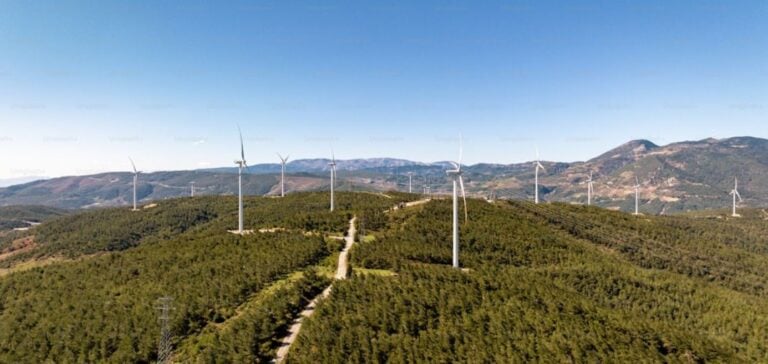The Saint-Imier wind farm, the largest in Switzerland, has just 16 turbines, a modest number compared with other European countries. Yet Switzerland’s ambition is to become carbon-neutral by 2050, requiring a significant increase in renewable energies, currently dominated by hydroelectricity (56.6%) and nuclear power (32.4%). Solar energy is also developing rapidly in Switzerland, as demonstrated by the installations in the town of Cressier.
A controversial referendum
A new law, adopted in 2023, aims to accelerate the development of renewable energies. However, environmental organizations have launched a referendum, fearing the “unnecessary destruction of landscapes”. They are supported by the Swiss People’s Party (SVP), which defends nuclear power as a guarantee of security of supply. UDC MP Yvan Pahud highlights the fluctuating nature of renewable energies and their impact on the Alpine landscape. In Switzerland, as in many European countries, nuclear power is a major point of political dissension in the energy sector.
Pierre-Alain Bruchez, the initiator of the referendum, is critical of the Grengiols-Solar project, which plans to install 230,000 solar modules at an altitude of 2,500 meters in the Valais. Instead, he advocates the installation of photovoltaic panels on existing buildings to avoid “sacrificing nature on the altar of climate change”.
Development prospects
The law proposes to increase hydro, wind and solar power generation, by facilitating the planning of large-scale facilities. However, Vera Weber, President of the Franz Weber Foundation, believes that the law weakens nature protection in Switzerland. The government admits that appeals against energy projects will probably have less chance of success, but points out that protections remain for biotopes of national importance and migratory bird reserves.
At the same time, 15 hydroelectric projects received support from WWF and Pro Natura, two environmental NGOs. WWF stresses that 80% of the development of renewable energies will take place in existing buildings, with measures to prevent electricity wastage.
Economic and ecological issues
Switzerland’s condemnation by the European Court of Human Rights (ECHR) for climate inaction has raised national awareness. A recent poll shows that 73% of Swiss support the new law. Greenpeace Switzerland, among other NGOs, insists on the need to reduce dependence on fossil fuels imported from non-democratic countries.
Jacqueline de Quattro, Liberal-Radical MP, reminds us of the responsibility of the Swiss who want more electrical comfort. She advocates the acceptance of visible renewable infrastructure, such as wind turbines and solar panels, to meet growing energy needs. It also criticizes the slowness of administrative procedures and calls for legislative clarification to define energy production zones.
So, Switzerland finds itself at a crossroads. The referendum on renewable energies represents a crucial moment in the country’s energy transition, highlighting the tension between sustainable development and the preservation of natural landscapes.






















